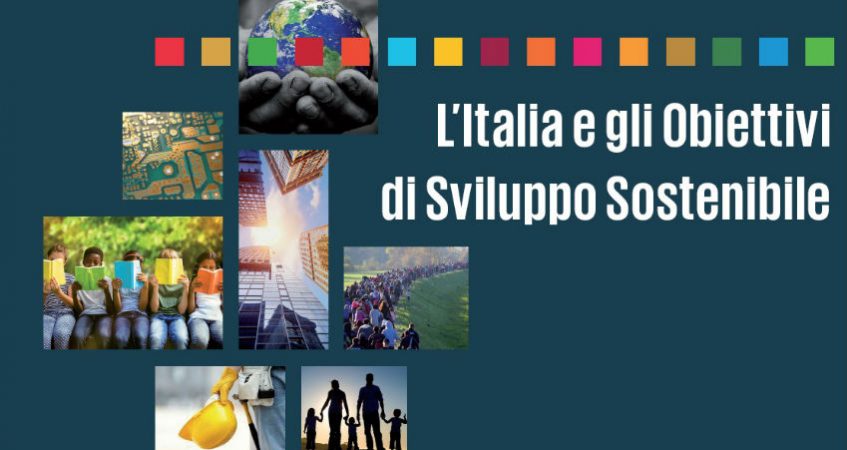Italy and the Sustainable Development Goals

28/09/2016
“With over 4.5 million absolute poor, a female employment rate of less than 50%, over 2 million young people who do not study and do not work; with investments in research and development of just over 1% of GDP, dropout rates of 27.3% for children of less educated parents compared to 2.7% for children of parents with college degrees and a relationship between rich and poor among the most unbalanced in the OECD area; with significant gender inequalities and unacceptable violence against women (76 femicides since the beginning of the year); with all the fish species at risk, a strong environmental degradation especially in certain areas of the country; with 36% of people living in areas with high seismic risk and high mortality due to air pollution in urban centres; with a too slow transition to renewable sources compared to the Paris agreements, Italy proves to be still very far from the sustainability path outlined by the 2030 Agenda and the commitments signed at the UN a year ago. Yet we know that we have no alternatives to guarantee a future for the country”. Thus expressed the Spokesman of the Italian Alliance for Sustainable Development, Enrico Giovannini, presenting the ASviS Report on “Italy and the Sustainable Development Goals” to the Chamber of Deputies on 28 September, the first analysis of the situation of the Italy compared to the 17 Objectives and 169 Targets of the 2030 Agenda. Yet we know that we have no alternatives to guarantee a future for the country”. Thus expressed the Spokesman of the Italian Alliance for Sustainable Development, Enrico Giovannini, presenting the ASviS Report on “Italy and the Sustainable Development Goals” to the Chamber of Deputies on 28 September, the first analysis of the situation of the Italy compared to the 17 Objectives and 169 Targets of the 2030 Agenda. Yet we know that we have no alternatives to guarantee a future for the country”. Thus expressed the Spokesman of the Italian Alliance for Sustainable Development, Enrico Giovannini, presenting the ASviS Report on “Italy and the Sustainable Development Goals” to the Chamber of Deputies on 28 September, the first analysis of the situation of the Italy compared to the 17 Objectives and 169 Targets of the 2030 Agenda.
After the introduction by President Laura Boldrini and Giovannini’s report, the meeting was attended by Undersecretary Sandro Gozi representing the Government, Stefano Bonaccini, President of the Conference of Regions, Marco Frey, President of the Global Compact Network Italy Foundation, Alberto Quadrio Curzio, President of the Accademia dei Lincei, Maria Edera Spadoni and Lia Quartapelle, respectively President and Vice-President of the Permanent Committee on the Implementation of the 2030 Agenda and the Sustainable Development Goals of the Foreign Affairs Commission
of the Chamber. The conclusions were entrusted to Pierluigi Stefanini, President of ASviS.
With the adoption of the 2030 Agenda and the 17 Sustainable Development Goals, a clear judgment was expressed on the unsustainability of the current development model and the idea that sustainability concerns only the environment has been overcome. On the contrary, sustainable development requires the adoption of an integrated logic of the various dimensions of development: economic, social, environmental and institutional. “There is no time to lose. For this reason, the definition of a Sustainable Development Strategy that guides the choices of all economic and social operators is more urgent than ever – continued Giovannini – and the adoption of immediate measures to be included in the next Budget Law. In a spirit of service to the entire country, ASviS, which brings together nearly 130 civil society organizations,
The ASviS Report (available on the website www.asvis.it) contains analytical insights for each of the 17 Goals of the 2030 Agenda, as well as a review of the strategies designed by other European countries (France, Germany, Finland, Switzerland, etc.) , and illustrates the Alliance’s proposals.
